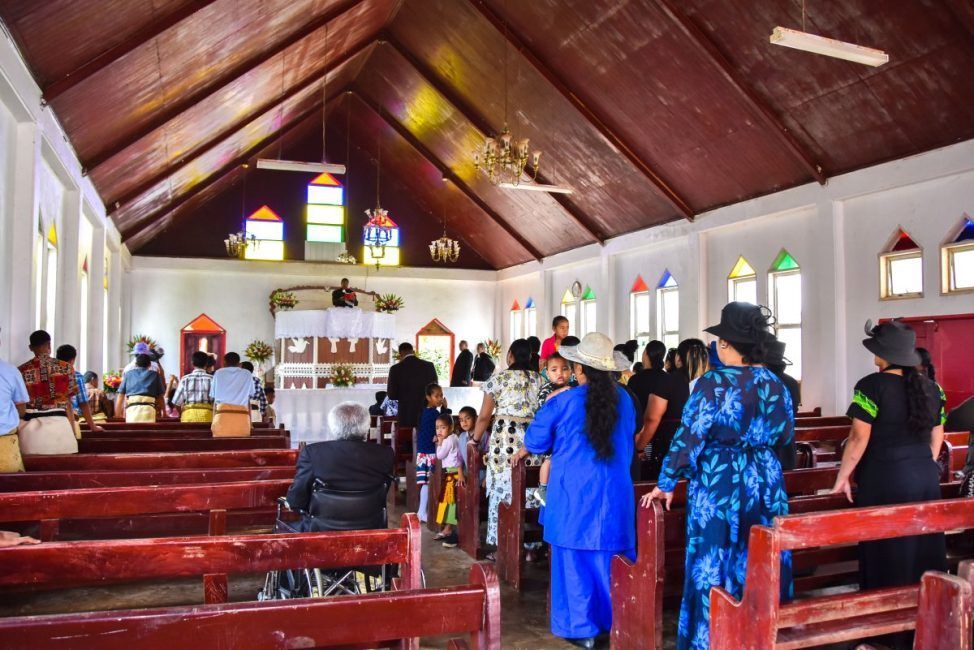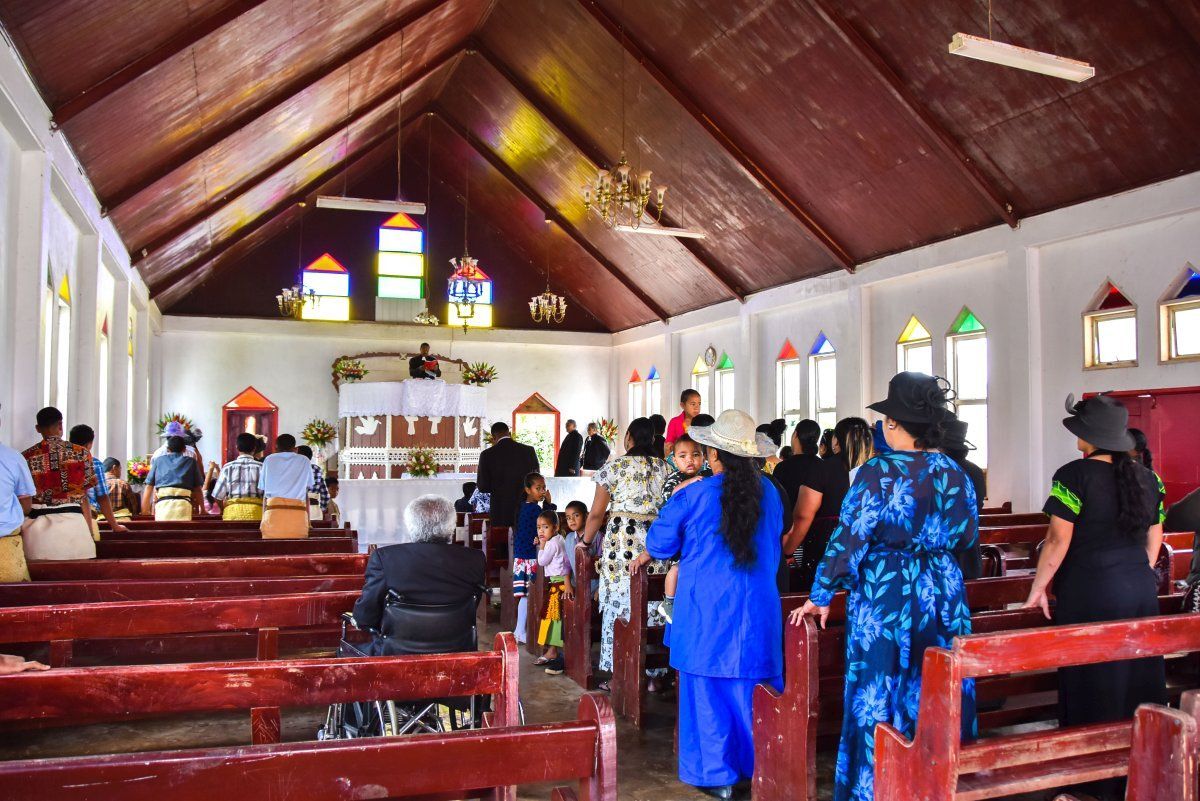What are the Religions in Tonga?
Tonga is an extremely religious country, with around 99% of the population practising some form of Christianity. Christianity was introduced to the islands some 230 years ago and has been going strong since with Christian-related laws such as observing Sunday as a “day of rest”, for instance. Religion is also engrossed in the culture, with Tongans going to church services every Sunday. On the other hand, Tonga is a country of religious freedom with a tiny proportion of the population identifying with other or no religions. Learn more about the religions in Tonga in the guide below.
A (Quick) History of the Religions in Tonga
Pre-missionary times, Tonga had practised an ancient religion for more than 2,000 years. It was a religion of gods and deities, as well as their unseen domain known as Pulotu.
Protestant missionaries started outposts in Tonga in the late 17th Century. Their influence in Tonga wasn’t solidified until the conversion of an influential chief, Taufa’ahau, who was then baptised in 1831 with the Christian name George Tupou and became King George Tupou I. The king influenced the conversion to Christianity across the nation. And the rest they say, is history…
Learn more about the history of Tonga in A Brief History of Tonga.
Christianity in Tonga
The most represented religion in Tonga is Christianity, with around 99% of the population identifying with a denomination of Christianity. Tongans are extremely religious and religion is an integral part of their culture, from modest clothing to attending Sunday church services to it being illegal to conduct business or play sports on a Sunday.
Where to Experience Christianity in Tonga as a Tourist
Visitors to Tonga are welcome to join Sunday worship in churches across the islands. Churches are found in all towns and villages. For the visitor, going to a Tongan church is an experience of listening to the powerful acapella harmonies or singing accompanied by brass instruments usually played by local school children.
Note that anyone going to a church in Tonga needs to cover their legs below the knees, cover their shoulders and wear smart to smart-casual attire. Think your Sunday best! See more tips for church etiquette in the 10 Best Churches in Tonga to Experience as a Visitor.
Many public holidays and celebrations surround Christianity in Tonga, from Faka-Sepitema to the Free Wesleyan Church Conference, which you can learn more about in our guide to Public Holidays in Tonga (& Other Important Dates). Furthermore, Christmas and Easter are also great times to be in Tonga to witness celebrations of these holidays by the Tongan people. Learn more about them in Where to Spend Christmas in Tonga and The Guide to Easter in Tonga.
Christian Denominations Represented in Tonga
These are the main Christian denominations found in Tonga in order of popularity:
- Free Wesleyan (Methodist)
- Latter-Day Saints
- Roman Catholic
- Free Church of Tonga
- Church of Tonga
- Assembly of God
- Tokaikolo Christian Church
- Seventh-Day Adventist Church
- Constitutional Church of Tonga
- Anglican Church
- Jehovah’s Witnesses
- Gospel Church
Around 1.02% of the population belongs to other Christian denominations not stated here.
Other Religions in Tonga
Despite the large population of Christians in Tonga, there is still a small percentage of the country practising other religions or no religion at all. Tonga establishes religious freedom, as stated in the constitution of Tonga.
There are minorities of the population practising the Baha’i Faith (around 0.75%), Buddhism (0.17%), Hinduism (0.09%), Islam (0.02%) and others.
Around 0.002% of the population do not identify with a religion.
Frequently Asked Questions About Religion in Tonga
Finally, check out the frequently asked questions about the religions in Tonga and see if your question is answered!
What are the Main Religions of Tonga?
The main religion in Tonga is Christianity, with around 99% identifying with a Christian denomination. The top five religions in Tonga, according to the 2021 Census, are Free Wesleyan Church (34.2%), Latter-Day Saints (19.7%), Roman Catholic (13.7%), Free Church of Tonga (11.3%) and Church of Tonga (6.8%).
What Percentage of Tonga is Mormon?
The percentage of Mormons (members of the Church of the Latter-Day Saints) in Tonga depends on who you ask. According to the 2021 census, 19.7% of the population claimed to be a member of the LDS church, while the LDS church itself claims 60% of the population.
When Did Tonga Convert to Christianity?
Tonga officially converted to Christianity in 1839 when King George Tupou I committed Tonga to Christianity.
Is Tonga a Catholic Country?
There is no official state religion in Tonga, which is a country of religious freedom. Around 13.7% of the population in Tonga identify as Roman Catholic.
How Many Muslims Live in Tonga?
According to the 2021 Census, around 60 Muslims live in Tonga.
More About the Culture and Religions in Tonga
That’s it for our guide to the regions in Tonga. For more about the Tongan culture, take a look at the following guides:
- Who are the People of Tonga? Ethnicity, Population & More
- 20 Fun Facts About Tonga
- The Best Islands to Visit in Tonga
Finally, if there’s anything we’ve missed, you’re likely to find it in The Guide to the Tongan Culture for Travellers.
Author
Robin (Lopini) C.
This article was reviewed and published by Robin, the co-founder of Tonga Pocket Guide. He has lived, worked and travelled across 16 different countries before settling in the South Pacific, so he knows a thing or two about planning the perfect trip in this corner of the world. Robin works and consults regularly with the Ministry of Tourism of Tonga. Robin is also the co-founder of several other South Pacific travel guides and is a regular host of webinars with the South Pacific Tourism Organisation.


